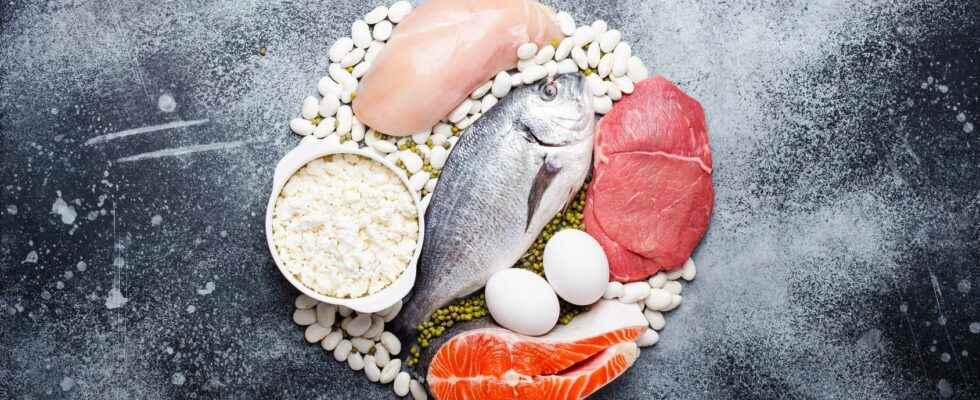Proteins are the basis of many tissues and participate in multiple physiological processes. A deficiency can result in various symptoms. Here are the people at risk and the signs that should alert.
You will also be interested
[EN VIDÉO] Modern food: the great advances and failures of half a century Is the food industry feeding us badly? Yes and no, demonstrates Dr. Cocaul, nutritionist and columnist at Futura. Our modern food is plentiful and well secured. However, the preparations and packaging are too attractive, while the reinforcement of sugar and salt makes it too rich, causing real epidemics, starting with obesity.
Our daily needs protein average 0.8 g per kg and per day. With the development vegetarian or vegan dietsthere is a risk of deficiencyespecially since vegetable proteins are less well assimilated than animal protein. The elderly and pregnant women are also at risk due to their higher needs. Here are six signs that can alert you to a possible insufficiency.
Constant food cravings
Protein helps to slow the release of sugars into the blood thus helping to regulate the blood sugar. A lack of protein will therefore lead to a peak ininsulin with a drop ofenergy and a feeling of hunger. On the other hand, meals rich in protein are more satiating than meals composed mainly of carbohydrates and of lipids because they take longer to digest.
Muscle weakness and ligament fragility
The muscle cells and ligaments need protein to renew themselves. When the intake is insufficient, this results in pains and muscle weakness. When the deficiency is prolonged, the body will also draw on the muscles to produce its energy.
Greater susceptibility to disease
The immune system relies heavily on immunoglobins (antibody), proteins that will recognize and neutralize the agents pathogens. In case of insufficient protein intake, these are not renewed quickly enough, which makes the body more susceptible to disease and delays the healing.
Hair loss and ridged nails
Nails and hair are made up of 97% keratina protein fibrous synthesized by the body. In the event of a lack of protein in the diet, the hair can no longer renew itself correctly, which results in a hair sparse. Likewise, the nails are ridged, dull and break easily.
Difficulty concentrating and trouble sleeping
The neurotransmitters like serotonin, norepinephrine or the dopamine are synthesized from amino acids of the protein. A low-protein diet can therefore lead to mental fatigue, mood disorders, reduced alertness and the ability to concentrate or even difficulty falling asleep.
Edema
L’albuminwhich represents 50% of the total proteins of plasmaregulates the oncotic pressure blood. When its rate is too low, the water leaks from the vessels to the surrounding tissues, which causes edemamost often located in the lower limbs.
Note: it is not enough to to eat any protein to cover its needs, because it also takes balance amino acid intake. Thus, a deficiency in a single amino acid is enough to prevent the synthesis of a protein. This balance is sometimes difficult to find when following a vegan diet, because plants are less complete in amino acids than meat or fish. Moreover, some minerals as the zinc and the sulfur participate in the stabilization of the protein structure.
Severe forms of protein deficiency (kwashiorkor) are however very rare and mainly affect young children in poor countries. They result in a delay or stunted growthweight loss, decrease in mass muscle, belly swelling, or even digestive and mental disorders.
Interested in what you just read?
Subscribe to the newsletter Health question of the week : our answer to a question you ask yourself (more or less secretly). All our newsletters
